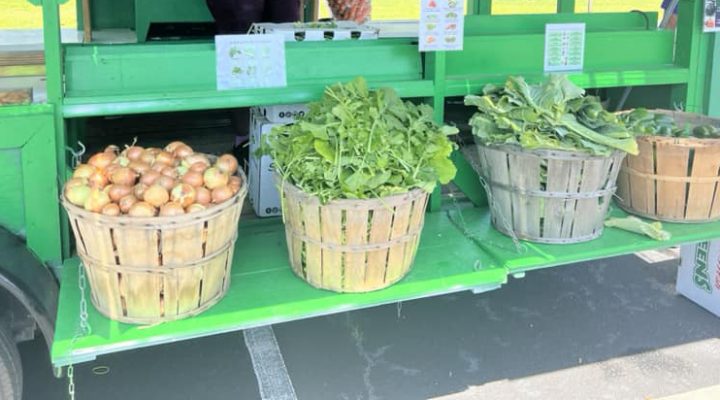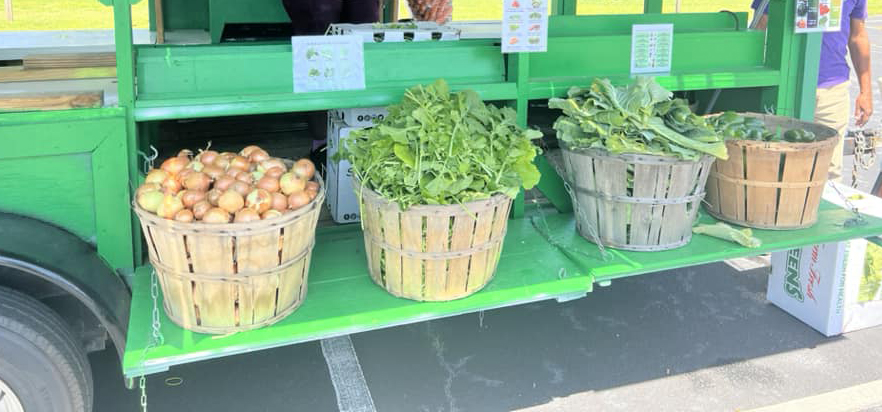The “Jesus gene” compels Christians to provide practical help and divine love to vulnerable people, Chuck Poole told participants at the 20th anniversary celebration of Together for Hope June 27, during the first night of the Cooperative Baptist Fellowship’s General Assembly in Atlanta.
Together for Hope is a rural development coalition launched by CBF in 2003 to help transform the 20 poorest counties in America. Across two decades, Together for Hope has expanded to include all 301 U.S. rural counties with persistent poverty. It involves about 50 partner organizations in many of those counties and is expanding the network to blanket rural sections of the nation.
Poole is Together for Hope’s faith and advocacy consultant, based in Birmingham, Ala. He retired in 2022 after a career as a pastor, author and advocate.
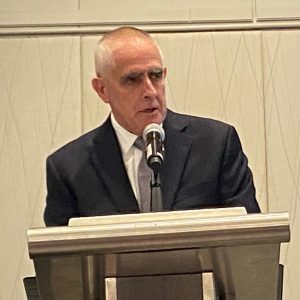
Chuck Poole addressing the Together for Hope anniversary dinner.
In preparing for Together for Hope’s 20th anniversary, Poole recently read all four Gospels and marked “every time healing and health come up in the … words and works of Jesus,” he said. “It happens 68 times. Sixty-eight times in Matthew, Mark, Luke and John, those who are sick and suffering are healed and helped.”
Poole acknowledged some of those events are reported more than once in the synoptic Gospels — Matthew, Mark and Luke. But “once you add that many healing moments to all the times Jesus fed people who were hungry, welcomed people who were strangers and intentionally sat down with or stood up for persons who had been stigmatized, ostracized, marginalized and demonized, you can see why working for a more just world is so important to so many people of faith,” he said.
“We work for social justice because we have made a spiritual decision to follow Jesus.”
“We don’t work for social justice because we have made an ideological decision to be progressive,” he stressed. “We work for social justice because we have made a spiritual decision to follow Jesus.”
That commitment is not unique to 21st century progressive Christians, Poole reported, citing two 20th century theologians. In 1911, Karl Barth said, “Jesus is the movement for social justice, and the movement for social justice is Jesus.” Dorothy Soolle wrote, “God is justice.”
And Barth, Soolle and other Christians who work for social justice ground their commitments in Scripture, he added, citing:
- Psalm 33:5 — “God loves justice.”
- Proverbs 21:3 — “God cares more about justice and righteousness than sacrifices and offerings.”
- Amos 5:24 — “Let justice roll down like waters and righteousness like a mighty stream.”
- Micah 6:8 — “What does the Lord require of us but to do justice, to love kindness and to walk humbly with our God?”
“It is little wonder that the Jesus whom we believe to be the ultimate embodiment of God would spend his life healing the sick, welcoming the outcast and intentionally sitting down with and standing up for whoever was most voiceless, vulnerable, stigmatized, ostracized marginalized and demonized — and calling those who would follow him to do the same,” he said.
Poole pointed out the irony that commitment to this kind of Christianity is set aside with a special name: “It is, to me, a wonder that the same Christianity which finds its beginnings in the Jesus of the four Gospels eventually had to create a carve-out for justice work and name it the Social Gospel — as though working for a more just world for all persons is something other than the real gospel.”
He added: “To live in solidarity with whoever is most voiceless and vulnerable, stigmatized and ostracized and demonized is central to — not extra to — the gospel.”
Consequently, Poole said he no longer uses the phrase “Social Gospel.”
“To say, ‘Social Gospel’ is not unlike saying ‘hot fire,’ ‘cold snow,’ ‘Holy Bible’ or ‘radical Jesus,’” he said. “In my experience, to read the four Gospels is to see that there is no extra/on-the-side/special category/footnote-to-the-real-gospel/social gospel.
“There is only one gospel, and it is social.”
He quoted South African Methodist minister and apartheid opponent Peter Storey, who said: “Whenever we ask Jesus to come into our heart, Jesus always answers, ‘Only if I can bring my friends.’”
“We don’t have to lay awake nights wondering who Jesus wants us to welcome, agonizing over who Jesus would want us to sit down with and stand up for.”
“And we know who Jesus’s friends are,” Poole said. “We don’t have to lay awake nights wondering who Jesus wants us to welcome, agonizing over who Jesus would want us to sit down with and stand up for. We have read the four Gospels all the way through so many times that we have now got what I call the ‘Jesus gene’ in us. … For almost every issue that comes along, we know what Jesus would want us to say and where Jesus would want us to stand. …
“We are not in a hand-wringing quandary about what Jesus would say, for example, about the major matters of Together for Hope — housing, education, opportunity, nutrition and equal access to health care for all persons.”
Those responses are clear, Poole added. “We have enough of the ‘Jesus gene’ in us to know that if Jesus were here, Jesus would say that ‘all cannot be well for any of us until all is finally well for all of us.’
“We have enough of the ‘Jesus gene’ in us to know that if Jesus were here, Jesus would call us to work for a more just world for all persons by letting the love of God, which has come down to us, go out through us in a life of intentional, public, practical, political solidarity with whoever is most voiceless and vulnerable, stigmatized and ostracized, marginalized and demonized, sick and suffering, unhoused and hungry, left out and outcast, hurting and alone.
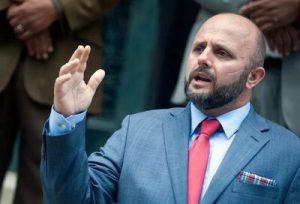
Jason Coker
“We have enough of that old ‘Jesus gene’ in us to know that all of that is absolutely central to the gospel — not the ‘Social Gospel,’ just the gospel gospel.”
Together for Hope President Jason Coker noted the organization could not have expanded from the nation’s 20 poorest counties to the 301 counties of persistent rural poverty without the engagement of its partners. He invited leaders of two such partners to describe their ministries.
Kenneth and Tabbatha Magee of Boots and Beyond, a ministry in the Mississippi Delta, described how they serve and advocate for U.S. military veterans. They connect veterans and their families to health care resources and also help them combat food insecurity.
“We refuse to have a man or woman who served our country to walk around without knowledge of the resources they deserve,” said Kenneth Magee, a fully disabled U.S. Navy veteran. “All this was enhanced by our partnership with Together for Hope.”
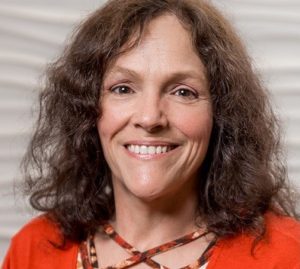
Scarlette Jasper
Scarlette Jasper, a CBF missionary in Appalachia, noted the challenge of talking to people about the gospel when their basic needs are not met.
She mentors people in Southeastern Kentucky, and her ministry includes conducting health clinics; providing case management services; supplying food, hygiene items and school supplies; teaching financial literacy and offering credit counseling; sponsoring “Extreme Builds” that construct new homes in 10 days; ministering to children; offering pastoral counseling; and supplying 2,800 Christmas boxes, “which, for many, will be the only Christmas gift they will receive,” she said.

